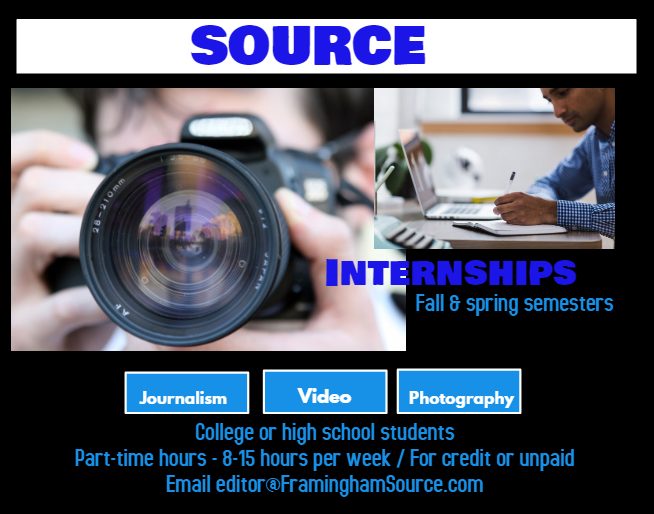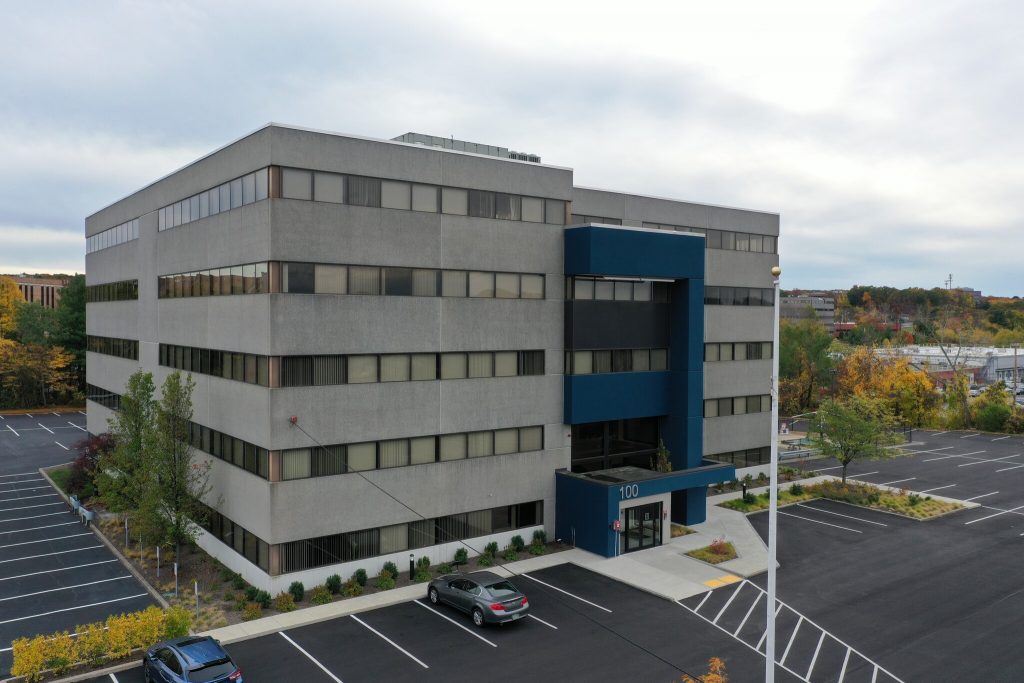By Caroline Lanni
***
[broadstreet zone=”51611″]
FRAMINGHAM – The COVID-19 pandemic has impacted and changed how many work. People find themselves working from home instead of driving into the City to office buildings. And that change has significantly impacted the commercial real estate market in MetroWest and Greater Framingham.
Many individuals are working from home and adapting into the technological world.
While the residential real estate market is booming, many office spaces are empty.
Many MetroWest office buildings are empty.
Businesses are not renewing leases, while other businesses are downsizing considering hybrid offices where some workers are in person and others work remotely.
Executive Director at Marlborough Economic Development Corporation [MEDC] Meredith Harris said, “The need for actual space is still there.”
Now with companies and places going to a hybrid model with people working from home productively you must keep an eye on the business for now and see what happens if people want to go back to being on site or not, she said.
For now they [in Marlborough] are focusing to “build that life science industry,” since those individuals in that career cannot work from home for what they do, said Harris.
In terms of strategies for dealing with the economic development, that COVID-19 is affecting, companies need to see what happens and decide for themselves on what best action to do, said Harris.
[broadstreet zone=”59945″]
Natick Economic Development Director James Freas said in “Natick, the pandemic has accelerated a number of trends that were already impacting commercial real estate in Town, most especially the move to online sales challenging national retail brands.
“Long term changes in the office sector remain to be seen as each company makes individual decisions about the degree to which their office workers will be returning to the office,” said Freas.
He has seen continuing strength in downtown Natick areas due to the Town of Natick’s program to allow restaurants to have outdoor seating options.
“Looking ahead, across all commercial areas of the Town, we have an increasing need to promote regulatory flexibility as, in a rapidly changing marketplace, adaptability will be a key factor for success,” said Freas.
Framingham’s Economic Development and Industrial Corporation [EDIC] Chair Doug Lawrence said, “We anticipate that the Framingham economy will continue to evolve and grow, as it has throughout its history, especially in the life sciences sector and in biopharma
manufacturing.”
Lawrence added, “It’s clear that many employers have learned that staff can be productive while working remotely, so we anticipate a modest, but permanent decline in demand for office space. That will likely help ease some traffic concerns the city has experienced in recent years.”

He said that building owners need to consider how they compete with a changing landscape by upgrading their facilities or thinking about acquiring higher values such as, “lab space, life science manufacturing, innovation hubs, healthcare facilities, and entertainment or housing.”
Framingham City Councilor Mike Cannon, who chairs the Council’s Economic Development subcommittee said, “Framingham’s local businesses deliver critical tax revenue which support our schools and our portfolio of public services. The City must do a better job of helping our local businesses emerge from this difficult time.”
Cannon said, the City needs to work together to remove those “obstacles” and that would help “deliver” the opportunities for businesses to survive and thrive.
“However, that takes meaningful collaboration – actually, doing the work, not just talking about it. Conversations need to become action items,” said Cannon.
“I am frustrated that the Mayor and senior administration – most working remotely, seem rather disengaged from our local business community. Nobody from the Mayor’s office regularly attends meetings of the Framingham Business Association. Those are important gatherings where our local business leaders give candid insight into what challenges they’re encountering and what help they need,” said the District 4 City Councilor.
Having the administration “choose” to miss informative sessions then the City will continue to lose those opportunities and lose the solutions for the local businesses, said Cannon.
The City Council has been asking questions and, “few answers or plans are forthcoming from the Mayor,” said Councilor Cannon.
“Several members of the Council work closely with our local businesses and we remain eager to collaborate with the Mayor and her administration – but we can’t overcome these challenges alone. Politics and petty squabbles need to be set aside to save our local businesses and reverse the trend of our increasing vacancy rates,” Cannon added.
[broadstreet zone=”59947″]
Framingham Planning & Community Development Director Kevin Shea said the effect from COVID-19 has been targeting the commercial sector in a negative way, while the residential “sector” has been doing well.
Shea said, “According to the latest publication of the Banker and Tradesman the median value of a single-family home in Framingham increased from $450,000 in 2020 to $528,000 in 2021.
“According to the latest information provided by [COSTAR] Commercial Real Estate Services the current office vacancy rate in Framingham is 32.1%. A year ago, it was 23.75 %, said Shea.
A year into the pandemic now the City is “continuing to concentrate its efforts on providing financial assistance through our Coronavirus Aid, Relief, and Economic Security [CARES] Act,” this helps fund small businesses in the City and residents with emergency housing needs, said Shea.
“With our second round of the Housing of Urban Development [HUD,] Community Development Block Grant [CDBG,] and CARES Act, the city is also providing financial assistance to programs that provide homelessness prevention, emergency food distribution, and access to medical services for our underserved community.”
President and CEO of the MetroWest Chamber of Commerce Jim Giammarinaro said there are different types of commercial real estate, one being the Flex Base’s [Industrial Space] inventory is low, and that segment of the market has not been impacted as badly as restaurants and landlords dealing with the decline in customers and tenants.
Giammarinaro said, “The landlords have been trying to work with tenants, and the restaurant businesses – retail business are severely depressed, and I think they are more significant due to the COVID-19 impact.”
Giammarinaro added real estate has “definitely” been impacted by COVID-19.
[broadstreet zone=”59948″]
According to Giammarinaro, The Worcester Business Journal said, “37% of small businesses are closed [end of 2020,]” so “them being closed people can’t pay their rent, and the biggest part of that was those businesses rely on foot trafficking – retailers and hotels.”
Giammarinaro added, “You have to define it by business segments, the Industrial and Manufacturing segment [Industrial Parks], they haven’t been as affected since those businesses have survived better in COVID-19.”
It will be a while until things are back, especially those who need State assistance for both tax and landlords since it will be a while for the foot traffic to be the same again. “You need the confidence of the public to go back,” said Giammarinaro.
For larger companies, so many people have been working remotely and decide they do not need people at the offices or on site then that will affect the commercial real estate. They will have to see how it plays out, said the MetroWest Chamber President
“The cities that have a more industrial base are going to be less impacted than people who have retail stores, said Giammarinaro.
Those stores that rely on people going into them for business and those who might not have an online presence would have low revenue and it will be down for a while, he added.
Giammarinaro said, “The economy has to open back up for everybody to be okay.”

He said that some bigger businesses online sales would go up due to COVID-19, and their in-person sales would go down. Small businesses have a harder time with keeping up with online business.
Giammarinaro added, “If you have a possibility to purchase locally – I would encourage people to do that because the quality of life will be affected if there are less stores, restaurants, and things to do, so I would encourage people to do whatever they can and support their local small businesses.”
So What Does the Future Hold?
MetroWest Commercial Real Estate senior broker Marlene Aron has been commercial realtor broker in the MetroWest area for 35 years.
“It was surprising to me to see how many office tenants continued to pay rent while not using their space. Some landlords worked with their tenants by reducing rent during the pandemic,” said Aron. “One new concept that seems to be catching on is taking vacant office space and leasing rooms to individuals on a short-term basis to fill space. Kenword Business Center at 63 Fountain Street in Framingham is considering this for a 7,500-sf. suite that faces Farm Pond.”
Historically it, was “not being professional” working from home, and now everyone is doing it in a professional sense and working from home, she said.
Commercial property owners are being creative like turning shopping malls into Amazon distribution centers, said Aron.
“I think the future will be more office condominiums, medical condominiums and residential conversions when zoning allows,” Aron added.
[broadstreet zone=”53820″]
President of Gordon Real Estate James Gordon, who has been in the commercial real estate for more than 40 years said office spacing has not been the best right now in the MetroWest area for two reasons.
“Reason A, COVID-19 has hurt things and is making companies work remotely so no one is intending to renew their leases – and the demand for office space is down right now,” said Gordon.
He added reason B, being that technology has made it possible for people to work remotely from home and not needing to come into work.
Gordon did bring up a slight positive outcome that the COVID-19 pandemic made for people, he said, those companies in Boston have moved from Boston to the suburbs to relocate to a “less desirable” area for COVID-19, since the City [Boston] is “densely crowded.”
These companies are moving to more suburban areas also to downsize their companies since people are working from home, said Gordon.
He added that some individuals are either not renewing leases or their vacancy rate is higher than it was in the past years.
“There are different tenants in the marketplaces all around and one space we [Gordon Real Estate] specializes in is medical space,” he said.
[broadstreet zone=”59982″]
Gordon said that services that have gone down due to COVID-19 are sale companies since less people are on the road driving somewhere, they stay home instead to work.
Landlords need to understand that the market has changed, keep your eyes on the goal, and fill the spaces in many ways, said Gordon.
Sales Associate and Agency Marketing Director at MetroWest Commercial Real Estate Cheryl Tully Stoll, said her future in the commercial real estate market is to continue to offer services for buying, selling, leasing, and real estate consulting to her clients.
Stoll said there are multiple reasons that there is a glut of office spaces in the MetroWest area.
“One is that some of our stock is older and not designed for the open space office environments that many companies prefer today. Additionally, attracting younger highly educated workers who prefer to live and work in the city and not own cars, means companies
need to be closer to Boston or Cambridge with easy access to public transportation,” said Tully Stoll. “That’s part of the reason we’ve seen a Framingham-based company like Bose Corporation, open a major footprint in a state-of-the-art campus in Brighton. And Genzyme announced a few years ago that they would be moving all their office employees from Framingham and consolidating them back into the city which they had moved them out of several years before.”
Tully Stoll said that their regional economy right now is dominated by biotechnology instead of computer technology and a lot of the legacy space is expensive to “retrofit.”
As a former City Councilor, Tully Stoll said that the empty spaces in the commercial real estate market is “unfortunately” going to affect the community, as a whole.
[broadstreet zone=”59984″]
“The City of Framingham relies heavily on our commercial taxpayers to subsidize tax rates for our residential taxpayers. The same is true with our water and sewer rates. Vacant and underperforming commercial space will have a negative impact on tax revenues and the level of services the City can provide,” she said.
Realtors and advertisers must work twice as hard now to promote leasing spaces in new ways since many people are not finding a need for leasing due to the pandemic.
The commercial market across America and in the MetroWest area were already undergoing changes before COVID-19, and the pandemic has added to the changes and pace of making these changes.
“Several of the restaurants that went out last year during the pandemic would have gone out anyway. There was already a problem with a misfit between what the market was providing and how people in the region were now living their lives,” Tully Stoll added.
“What I am seeing that is interesting right now, is that the Route 9/Route 30 area has a lot more vacant retail space than the downtown area. If someone wants something on Route 9 there are lots of properties to show them; downtown—very few. The money and resources that were invested in our downtown over the past ten years seems to be paying off. … The industry was seeing structural changes before COVID-19. I don’t think anyone really knows how it will end and we won’t know how it’s going to end for a year or two or even three,” said Tully Stoll.
Vacant properties now are going to need to be “repurposed” and raises questions of maybe the Natick Mall becoming “fulfillment centers for on-line shoppers,” or maybe office parks might be converted into apartments due to housing shortages?
“Only time will tell,” Tully Stoll said.
[broadstreet zone=”58610″]
***
Caroline Lanni was a 2021 spring SOURCE intern. She graduated from Framingham State University earlier this month.


Marlborough 
Framingham

Hopkinton 
Natick

